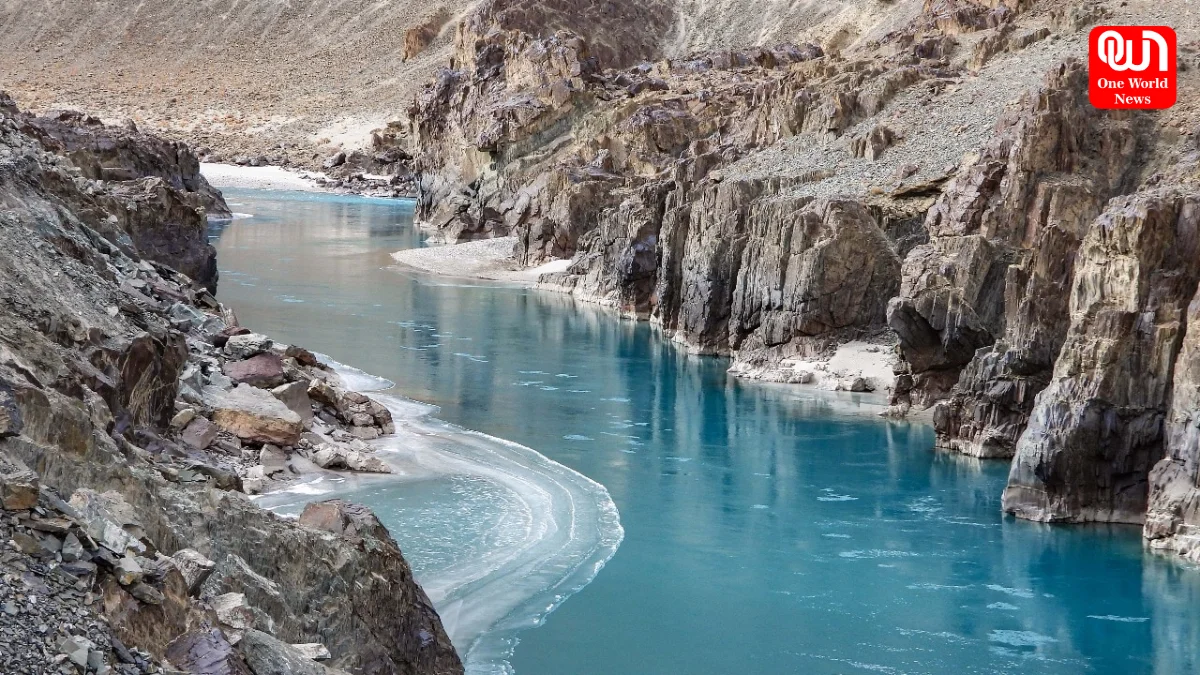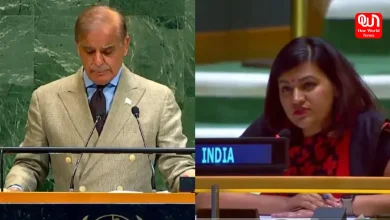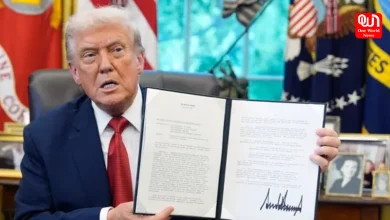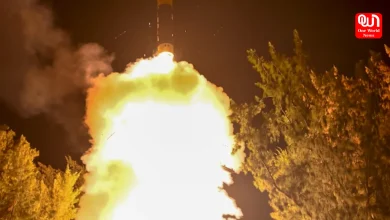India Puts Indus Waters Treaty On Hold: Big Moves Underway To Stop Water Flow To Pakistan
India halts Indus Waters Treaty, plans to divert river waters from Pakistan amid rising tensions over cross-border terrorism.
India Suspends Indus Waters Treaty: Big Plans Underway to Ensure Not a Drop of Water Reaches Pakistan Amid Rising Tensions
In a historic and bold decision, India has officially put the Indus Waters Treaty (IWT) of 1960 in abeyance, sending a clear notification to Pakistan that it does not want to be a little brother amid escalating tensions by performing terror attacks across borders. Jal Shakti Minister CR Paatil had proclaimed on Friday that the government is developing three strategic plans-short term, mid term and long term-in which not even a drop of Indus river water would flow into Pakistan. The move reflects India’s firm stand against Pakistan actively supporting terrorism against Jammu and Kashmir.
It is said during a high-level meeting at an outreach house owned by union home minister Amit Shah. There was a detailed discussion with regard to future course of actions. The government’s firm resolution changes the contradiction in Indian policy to loud and clear evidence that it is ready to use whatever is at its disposal, including water management, to protect national interests.
Long-Term Plans in Pipeline
Sources in the Government revealed that several long-term plans were finalized regarding the effective implementation of the decision to be taken. These include desilting the existing dams, diverting river waters, and building new dams for max utilization of Indus waters from India’s perspective. Additionally, India plans to put an end to hydrological data being shared with Pakistan, which is essential in matters of managing floods and droughts on both sides of the border.
India will try to fast-track some of its hydropower projects that have been stuck because of Pakistani objections under the IWT framework. Now that the treaty is out of the way, India can go ahead without having to give Pakistan advance notice for new projects. This could substantially increase the power supply available to Jammu and Kashmir, greatly improving the local economy and reducing energy shortages.
The Centre plans to assure citizens that these changes will not adversely affect them. It is also ready to face any challenge that might be initiated by Pakistan in international forums, including the World Bank, which originally mediated the treaty.
Long-standing Grievances in Jammu and Kashmir
Omar Abdullah, former Chief Minister of Jammu and Kashmir, commented on the move, saying that people have always considered the Indus Waters Treaty an unfair one. He adds that Jammu and Kashmir have never been in favor of the treaty and have suffered its limits for too long. Abdullah, considered a measure positive direction for the region, adds that the immediate impacts of suspension are yet to unravel in effusiveness.
This new approach by the Centre may, after a long time, redeem the historical injustices borne by Jammu and Kashmir under the treaty, giving the Union Territory a finally encased opportunity to tap its full potential in terms of water and hydropower.
Blood and Water Cannot Flow Together
The Bharatiya Janata Party (BJP) fortified this decision of the Government with a striking video and statement that resonates Prime Minister Narendra Modi’s words of 2016: “Blood and water cannot flow together.” The video explains how the Indus Waters Treaty has been historically skewed in favor of Pakistan, allowing them control over 70% of the shared waters while India managed only 30%.
The video further details how at least 80% of Pakistan’s agriculture depends on the Indus basin, making the country highly vulnerable to disruptions in water supply. Thus, through suspension of this treaty, India extends and solidifies its legal and supernatural powers to defend national interests, even as it squeezes Pakistan towards rethinking nourishments and nurturance to terrorism.
The BJP also sketched a 5-point action plan that included the suspension of the treaty, signifying that India is now playing its cards strategically to ensure Pakistan feels the consequences of its actions.
India’s Official Communication to Pakistan
On April 24, India officially told Pakistan about suspending the Indus Waters Treaty. In a letter addressed to Pakistan’s water resources secretary, Syed Ali Murtaza, India’s water resources secretary Debashree Mukherjee declared that ever-rising cross-border terrorism against Pakistan went against the spirit of the treaty.
“The obligation to honour a treaty in good faith is fundamental,” reaffirms the letter, stressing that Pakistan’s actions involve an impediment to India’s rights under the treaty. Such treats cannot survive mutual respect and goodwill, which have completely been absent from Pakistan’s approach in the recent years.
Understanding the Indus Waters Treaty
The Indus Waters Treaty was signed in 1960 by both countries, with the World Bank as a guarantor, with regard to separation of the rivers of the Indus basin between India and Pakistan. The agreement apportioned the waters of three eastern rivers- Beas, Ravi, and Sutlej- as India’s, while the three western rivers- Indus, Jhelum, and Chenab- were given to Pakistan.
India has the rights to 41 billion cubic meters of water annually, while Pakistan gets a much larger share of 99 billion cubic meters. Such an imbalance notwithstanding, India has maintained its own commitment to the treaty, even after several wars and conflict with Pakistan. This is a significant deviation from such restraint, asserting India’s right to reconsider any agreement when faced with continuous hostilities and treachery.
Conclusion
Suspension of the Indus Waters Treaty by India changes the tenor of its relations with Pakistan. India is taking a firm course and protection in the act of constructing long-term water management projects, withholding hydrological data, and speeding up dam construction. This strategic move signals that India will no longer tolerate aggression without consequences. As the months unfold with changing watersharing – and Indo-Pak relations – the world will watch closely.
We’re now on WhatsApp. Click to join.
Like this post?
Register at One World News to never miss out on videos, celeb interviews, and best reads.








